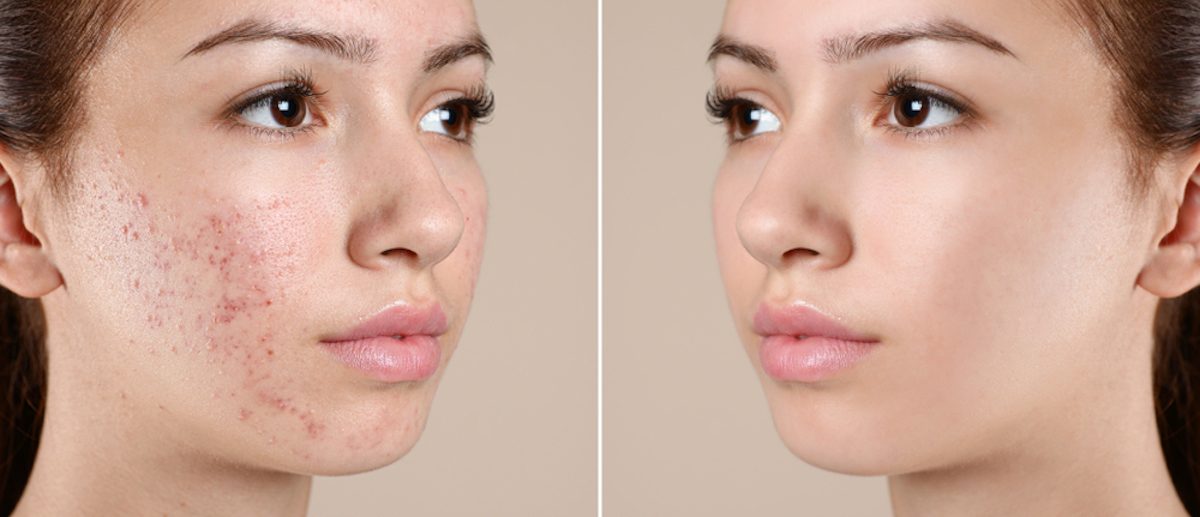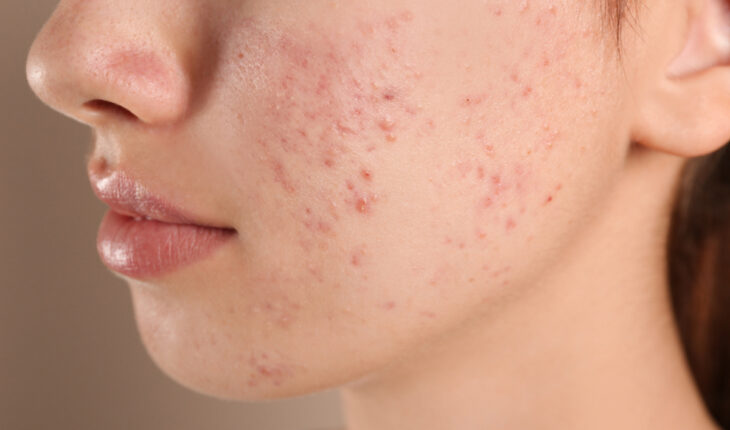First, it is important to leave pustules, bleak or whiteheads, and cysts alone. If you start squeezing or scratching them, you increase the chances of poor healing, more acne, and scarring. If you have a mild form of acne, you may use non-prescribed treatment options to treat the symptoms. You can also make an appointment with your professional healthcare provider to have the acne examined and set up a treatment plan. Should it not disappear with non-prescribed treatment options, also schedule an appointment with your professional healthcare provider. It is time for heavier treatment options.

Are There Any Treatment Options?
When you go to a professional healthcare provider, such as a dermatologist, he or she will first examine your symptoms. How severe is the acne and what form are you suffering from? You will then be categorized into a certain grade and from here the best treatment plan will be set up. These grades are:
- Grade 1; mild form of acne – mostly white and blackheads & some papules/pustules.
- Grade 2; pustular acne – multiple papules/pustules, mostly on the face.
- Grade 3; nodulocystic acne – multiple papules/pustules & inflamed nodules.
- Grade 4; severe nodulocystic acne – large, painful and inflamed pustules and nodules
After this there are different treatment options to choose from. Your professional healthcare provider will probably start prescribing medication, this can be over-the-counter products, but also prescribed medication. Medication options, include:
- Benzoyl peroxide; over-the-counter leave-on gel or wash
- Salicylic acid; over-the-counter cleanser or lotion
- Azelaic acid
- Retinoids
- Antibiotics
- Dapzone
- Oral contraceptives
- Isotretinoin
Other possible treatment options are laser therapy, chemical peels and in very rare cases steroids. More natural treatment options – which you can use in combination with the prescribed treatment – are adding products with a good supply of vitamin A, E and Zinc, using tea-tree oil, drinking (green) tea and applying moisturizers with aloe vera to the skin/face.
It’s important to always seek medical treatment when you suffer – or think you suffer – from a skin disorder. Your healthcare provider will look at you, examine your symptoms, make the right diagnosis, and start an effective treatment plan. For more information about acne and other skin conditions and how and where to get treatment, start your online research here:

